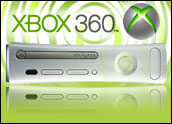
In the two weeks following the launch of Nintendo’s “Wii Fit” for its popular Wii video game console, consumers have found the exercise game challenging — challenging to find, that is.
Trying to locate the US$90 game/controller combo at retailers such as Amazon.com, Best Buy, Circuit City and GameStop will give Wii owners all the exercise they need as they run from one store to the other.
Considering the ongoing shortfall of Wii consoles in the U.S. during the 18 months since Nintendo released the console, the shortage of “Wii Fit” should come as little surprise. However, some may be surprised that the cause for the meager supply could be related to the economy and a relatively weak dollar.
That’s what Michael Pachter, a Wedbush Morgan analyst, said is behind the empty store shelves. The current exchange rate is approximately $1.55 per euro and $1.97 for a British Pound.
“‘Wii Fit’ sells for around the same price in Pounds, euros and dollars, meaning that Nintendo gets around 50 percent more per unit by selling in euros or GBP. As a result, they are shipping more to Europe than to the U.S.,” he told TechNewsWorld.
Wii Economy
The weaker dollar is a “compelling” reason for Nintendo to distribute a larger volume of “Wii Fit” units in Europe and elsewhere abroad, Michael Inouye, an In-Stat analyst agreed. However, he said, the more interesting question is why Nintendo did not simply produce more units.
“I will buy into the Wii console’s initial shortfall, given early analysts’ … less than stellar projections, but this time around, I can’t imagine any excuses save for manufacturing capacity issues,” he told TechNewsWorld.
Although Inouye acknowledged there is validity to the weaker dollar argument, he does not believe it is the root cause.
“The weaker dollar, while a legitimate factor, is a scapegoat in some respects, at least from my viewpoint. Did they ship more ‘GTA IV’ (‘Grand Theft Auto IV’) copies, shortchanging the U.S.? No, they produced enough copies to support the demand, and they definitely supported the European countries, perhaps more so than past game releases,” he noted.
“And even one of Nintendo’s Mario games last holiday season was reportedly hard to come by — there certainly is no excuse for a game shortage,” he added.
Scarcer the Berry, Sweeter the Demand
Nintendo need not worry that sales for its supply-challenged Wii and the hard-to-find “Wii Fit” will dim enthusiasm for either the console or the game, according to both Pachter and Inouye.
Though he said it is difficult to say whether the gamemaker will catch up to demand for the “Wii Fit,” the amount of time until a greater supply is ready will be shorter than the wait for more Wiis.
“If Nintendo somehow derived low projections again, then there is a chance supply will take longer to catch up, but I imagine the timeframe will be far shorter than the Wii console; although, as I said before, I’m rather dubious Nintendo has meager projections for the ‘Wii Fit’,” Inouye explained.
Inouye’s doubts about a potential production miscalculations by Nintendo are supported by the company’s own sales numbers. A statement released by Nintendo in April boasted that more than 2 million units of the “Wii Fit” had sold in Japan since the game was released in December 2007.
Though not privy to Nintendo’s production capacity, Pachter said he “would imagine that they will meet demand by the end of the summer.”
“Shortages increase demand, and will not dampen demand. People will still be fat at year end,” Pachter pointed out.
Desire for “Wii Fit” may not diminish among dedicated Wii fans, but Inouye noted that Nintendo has to be careful as it walks a tightrope between supply and demand.
“Shortage is not a necessarily bad thing, but it’s a fine line and a double-edged sword,” he said.
There will come a point when consumers who have been attracted to the Wii because of the hype from the media, friends and family will simply give up — they are far less likely to get to the local Target or Best Buy before it opens and stand outside anticipating a Wii or “Wii Fit,” Inouye continued.
“You likely won’t lose those who really want a Wii or ‘Wii Fit,’ but haven’t been able to snatch one up yet — at least not for some time. But we are getting close to the point in time where Nintendo should get concerned about satisfying demand, because the day the media grows tired of covering the Wii, then Nintendo will have lost out on those additional consumers and perhaps a few Nintendo fans,” he concluded.













































Social Media
See all Social Media